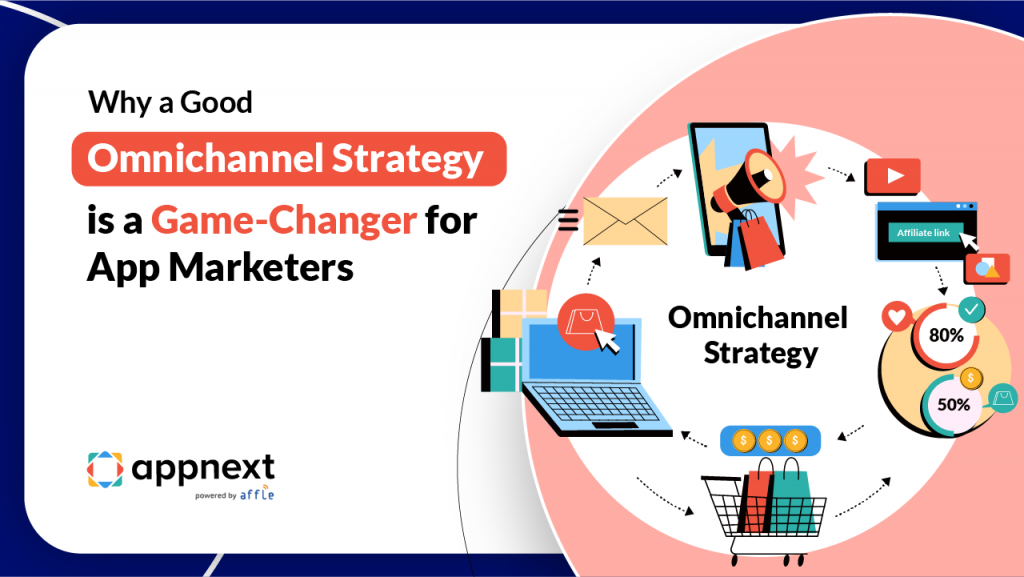
Customer interactions with brands have transformed into a rich, multi-layered journey, blending the digital and physical worlds. Whether browsing on a mobile app, shopping in-store, or researching online, today’s consumers expect seamless continuity between every interaction. It’s no longer enough for businesses to be present across different channels—they need a strategy that ties all those touchpoints together into one fluid, engaging experience. At the core of this shift are mobile apps, which now serve as the cornerstone of successful omnichannel strategies. When done right, these strategies revolutionize customer engagement, deepen connections, and ultimately drive loyalty in ways that feel both intuitive and highly personalized.
Understanding Omnichannel Customer Engagement
Omnichannel customer engagement involves creating a cohesive experience where every touchpoint, whether it’s browsing a website, interacting with a social media ad, or completing a purchase on a mobile app, feels seamlessly connected and personalized. Research shows that companies with well-executed omnichannel strategies retain a significantly larger portion of their customers due to the consistency and personalization provided across all platforms, fostering both loyalty and satisfaction. PwC research found that most customers are willing to pay more for an exceptional experience, and personalized digital interactions—central to a strong omnichannel strategy—can influence nearly half of customers to make repeat purchases.
A well-executed omnichannel strategy ensures that customers can engage with a brand whenever, wherever, and however they choose. Mobile apps are pivotal to creating this harmony, providing real-time, personalized interactions that keep customers engaged and connected across all platforms.
Mobile Apps in the Omnichannel Experience
Mobile apps not only enhance engagement through personalized messaging but also serve as powerful tools for understanding user behavior across channels. By analyzing data such as browsing history, purchasing patterns, and in-app interactions, brands can build detailed customer profiles that inform more effective marketing strategies. This data helps refine the omnichannel approach, ensuring that future touchpoints—whether through social media ads, email campaigns, or in-store experiences—are tailored to the individual’s preferences.
In addition, apps offer the ability to integrate loyalty programs and mobile payment options, further streamlining the customer experience. Features like mobile wallets or one-click checkout simplify the purchasing process while maintaining continuity between online and in-store transactions. Recent data indicates mobile wallets are expected to account for nearly 50% of all e-commerce payments by 2025, highlighting the growing importance of seamless, app-driven payment experiences.
Omnichannel strategies are central to a seamless shopping experience across multiple devices. Customers may begin their journey on one device—browsing on their phone, for example—then switch to a tablet or desktop to continue, and even complete their purchase in-store. Mobile apps play a critical role in facilitating this fluid transition, ensuring customers experience consistent, uninterrupted interactions that drive conversions and boost satisfaction. Studies show that many shoppers start on one device and finish on another, underscoring the essential role apps play in this journey.
By leveraging these capabilities, marketers can not only drive conversions but also encourage long-term loyalty. Mobile apps allow businesses to create a more cohesive, personalized journey that resonates with today’s mobile-first customers, helping increase customer lifetime value (CLV). Consumers who interact with businesses across multiple channels tend to have higher average order values and are more likely to make repeat purchases.
Putting Insights Into Action with Appnext
The real challenge for businesses lies in implementing an omnichannel strategy that fully integrates the mobile experience. This means weaving each app into a user’s individual mobile journey, ensuring that every interaction is personalized and relevant. Appnext uses AI-driven insights to create personalized app discovery experiences that align with users’ preferences and behaviors. By analyzing how users engage across channels, Appnext ensures that app recommendations feel bespoke, fostering deeper connections and trust. This approach not only boosts app downloads but also builds loyalty—both critical for a successful omnichannel strategy.
Appnext enhances engagement by delivering personalized content and ad experiences, transforming app discovery into a more interactive and rewarding process. Through its partnerships with leading OEMs, including Samsung, Xiaomi, and Oppo, Appnext ensures that apps are seamlessly integrated into the user’s mobile journey, keeping them engaged and invested. Leveraging AI-driven insights and user behavior patterns, Appnext tailors app recommendations to meet individual preferences, creating a smooth, personalized experience that strengthens user retention and long-term engagement.
These partnerships with top OEMs allow Appnext to integrate seamlessly into the wider omnichannel strategy, offering businesses the opportunity to connect with users across various touchpoints in a highly personalized manner. This deep integration into mobile devices ensures that app recommendations are woven into the user’s everyday interactions, whether they are browsing, shopping, or engaging with content across devices.
With AI-driven personalization, dynamic content, and seamless user experiences, Appnext leads the way in supporting omnichannel strategies that resonate with today’s mobile-first customers. By integrating Appnext’s technology, marketers can make their mobile apps a cornerstone of omnichannel success, ensuring consistent customer engagement and loyalty across all platforms.



Comments are closed.